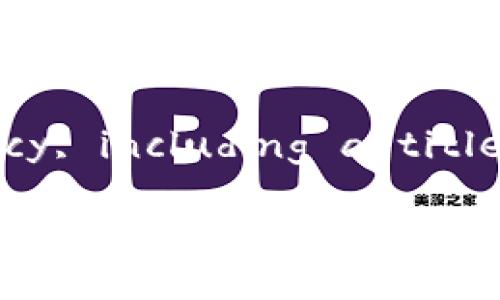## 内容主体大纲1. 引言 - 数字货币的崛起 - 公司运行模式的重要性2. 数字货币公司的基本概念 - 定义及功能 - 行业现...
Cryptocurrency is a form of digital or virtual currency that uses cryptography for security, making it difficult to counterfeit. Unlike traditional currencies, which are issued and regulated by a central authority, cryptocurrencies operate on decentralized platforms, primarily using blockchain technology. This decentralized nature allows users to transact directly with each other without the need for intermediaries like banks.
One key difference is in the issuance of currency. Traditional currencies can be printed and controlled by central banks, leading to sequential inflation or deflation based on economic policy. In contrast, most cryptocurrencies have a predetermined supply; for example, the supply of Bitcoin is capped at 21 million coins, making it potentially deflationary over time.
Additionally, transactions in cryptocurrency are recorded on a public ledger known as the blockchain, enhancing transparency and reducing fraud. Traditional banking systems, however, involve privacy concerns as transactions are hidden and monitored by financial institutions.
This fundamental difference in structure and control makes cryptocurrencies an attractive alternative investment and a potential means of payment, especially in an increasingly digital economy.
####
Blockchain technology serves as the backbone of cryptocurrencies, providing a decentralized and secure method for recording transactions. A blockchain is essentially a distributed ledger comprised of blocks that contain transaction data, which are linked together in chronological order. Each block is validated and secured using cryptographic techniques, ensuring that once data is added to the blockchain, it becomes virtually immutable.
Each participant in the network maintains a copy of the entire blockchain, allowing for transparency and preventing any one party from manipulating the transaction history. The decentralized nature of blockchain eliminates the need for a central authority, which is a significant advantage over traditional banking systems.
Smart contracts, which are self-executing contracts with the terms directly written into code, also run on blockchain platforms, enhancing functionality beyond simple transactions. This feature allows for complex agreements and operations in various digital applications, ranging from finance to supply chain management.
Overall, blockchain technology fosters trust and efficiency within the cryptocurrency network, enabling secure peer-to-peer transactions without the involvement of third parties, which can be slow, costly, and prone to fraud.
####Investing in cryptocurrency offers several advantages, starting with high potential returns. Many investors have seen significant profit margins, especially from foundational cryptocurrencies like Bitcoin and Ethereum, which have generated substantial returns since their inception. The appeal of rising asset prices alongside the developing market for new digital currencies continues to draw in investors.
Another advantage is the 24/7 market access; unlike traditional stock markets that operate on a fixed schedule, cryptocurrency markets run around the clock, allowing investors to trade anytime based on their convenience.
However, cryptocurrency investing is not without risks. The market is highly volatile, experiencing rapid price fluctuations that can lead to significant losses. Many investors face challenges due to a lack of regulation, which also opens the door for fraud and hacking incidents. Moreover, the complex technology behind cryptocurrencies can be daunting for beginners, making it critical to perform thorough research before investing.
In conclusion, investing in cryptocurrency carries both potential rewards and significant risks. Understanding these factors allows investors to make more informed decisions and consider their risk tolerance when engaging in this market.
####
Securing cryptocurrency is paramount because once stolen, it is nearly impossible to recover. Various methods exist for storing cryptocurrencies, each with its advantages and security levels. The most common storage options include hot wallets, cold wallets, and hardware wallets.
Hot wallets are online wallets connected to the internet, making them easy to use for transactions. However, they are susceptible to hacks. Therefore, they are best used for small amounts of cryptocurrency that you need for frequent transactions, while larger amounts should be moved to more secure options.
Cold wallets are offline storage options that generally provide increased security. These can take the form of paper wallets, where your private keys are printed out and kept somewhere safe, or USB drives that store your cryptocurrency offline, minimizing the risk of online attacks.
Hardware wallets, such as Ledger and Trezor, take security a step further by providing physical devices that store your cryptocurrencies offline while facilitating transactions through USB connections. They offer high security and are user-friendly for those who regularly use cryptocurrency.
In summary, securely storing cryptocurrency involves understanding the risks and utilizing appropriate storage methods based on your needs. Always use secure practices, including enabling two-factor authentication, keeping backup recovery phrases safe, and regularly updating software to protect your assets.
####Since the launch of Bitcoin in 2009, thousands of cryptocurrencies have emerged, categorized mainly into several types. Bitcoin remains the most recognized and valuable cryptocurrency, primarily used as a store of value and a digital currency for transactions.
Another significant category is altcoins, which includes notable cryptocurrencies like Ethereum, Ripple, and Litecoin. Ethereum is particularly known for its smart contract functionality, allowing developers to build decentralized applications (dApps). Ripple focuses on cross-border payments and aims to streamline banking transactions, while Litecoin is often referred to as the silver to Bitcoin's gold, offering faster transaction times.
Stablecoins represent another vital type, designed to minimize price volatility by pegging their value to stable assets like fiat currencies. USDT (Tether) is one of the most popular stablecoins used for trading and providing liquidity within cryptocurrency exchanges.
There are also tokens, which are built on existing blockchain platforms. These can represent various assets or have specific utility within their ecosystems. Examples include Binance Coin (BNB) which is used on the Binance exchange, and Chainlink (LINK), a token that provides real-world data to smart contracts.
Overall, the cryptocurrency landscape is diverse, and potential investors need to understand the differences among these types to make informed investment decisions.
####The regulation of cryptocurrency varies significantly from country to country, reflecting differing attitudes towards its use and potential risks. Some nations, such as the United States, have established frameworks for taxation and addressing securities laws to regulate cryptocurrency. The SEC (Securities and Exchange Commission) monitors whether certain cryptocurrencies qualify as securities, which subjects them to regulatory oversight.
In contrast, countries like China have taken a harsher stance, imposing strict regulations and outright bans on cryptocurrency transactions and Initial Coin Offerings (ICOs). However, the Chinese government has also announced interest in developing its digital currency, known as the Digital Yuan.
European countries are working towards a cohesive regulatory approach through the European Union’s legislative frameworks aimed at enhancing market integrity and consumer protection while fostering innovation. The MiCA (Markets in Crypto-Assets) framework is an example of such regulatory efforts, providing guidelines on the use of cryptocurrencies in transactions.
Ultimately, clear and effective regulation could enhance consumer confidence and stability in the cryptocurrency market. Nonetheless, the global nature of cryptocurrency complicates enforcement, prompting calls for more harmonized regulations across borders.
####For beginners looking to invest in cryptocurrency, it is crucial to approach the market with diligence and care. First, potential investors should educate themselves about the fundamental concepts of blockchain and how cryptocurrencies operate. Understanding the risks involved, including market volatility and security issues, is essential to avoid costly mistakes.
Establishing a clear investment strategy is vital, whether it’s a long-term hold approach or short-term trading. New investors should start with a small investment that they can afford to lose, gradually increasing their exposure as they become more comfortable with the market.
Understanding the various types of cryptocurrencies can also guide investment decisions. Focus on reputable cryptocurrencies and those backed by solid technology and development teams. Researching the project’s whitepaper, the team behind it, and how it fits into the larger market can provide valuable insights.
Finally, beginners should prioritize security by selecting reputable exchanges, utilizing secure wallets, and employing best practices such as enabling two-factor authentication. Keeping abreast of market trends and developments can help investors make informed choices and adapt their strategies as necessary.
--- This outline and detailed responses for each question provide a comprehensive starting point for discussing cryptocurrency, aimed at beginners while also catering to best practices. If you would like to dive deeper into any section or question, feel free to ask!